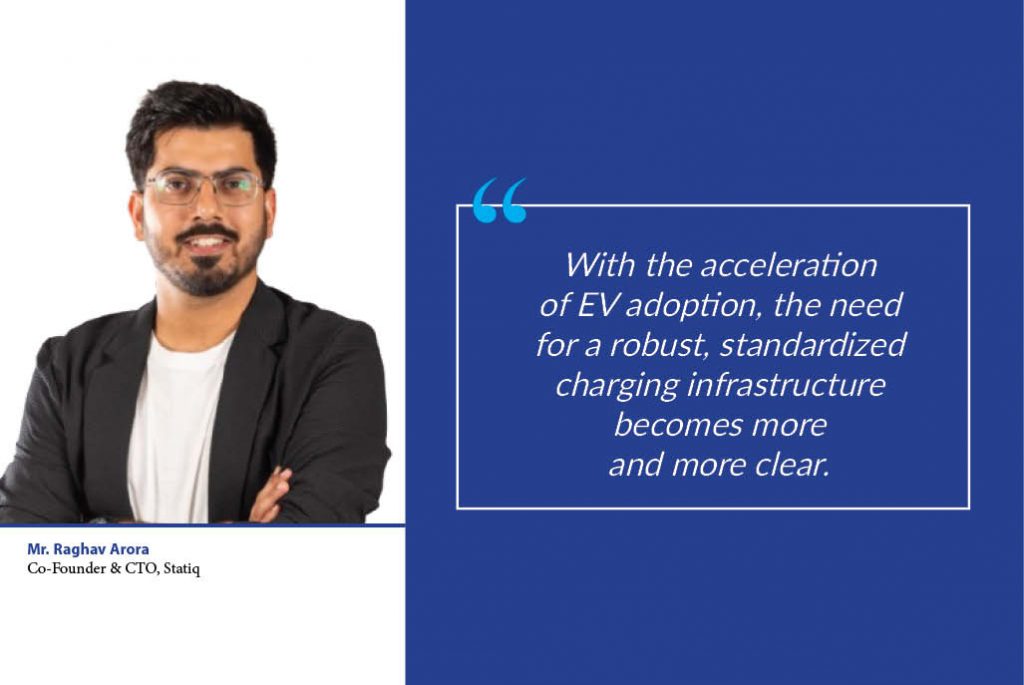When the EV revolution was in its infancy stage, drivers who had made the smart switch faced a lot of daunting issues, limited charging stations, incompatible plugs, and clunky interfaces, to name a few. Early charging platforms offered little more than basic location data, and users had to juggle multiple apps or rely on word-of-mouth to locate and access charging points. The lack of real-time information about station availability, plug compatibility, and charging speed added to the woes. Today, the EV users’ journey has evolved remarkably thanks to the technological leaps that have made charging easier and the role of innovative digital platforms that are shaping a user-centric future for all involved. In 2024, the number of fast chargers (DC) worldwide reached 2 million, with ultra-fast chargers (over 150 kW) making up about 10% of this total.
The Turning Point
With increasing advancement in technology charging platforms have started integrating real-time data, allowing users to not just locate the stations but also know beforehand what types of plugs they support, and even the cost of charging. The cornerstone of modern EV experience is the introduction of dedicated customer support channels which made it possible for knowledgeable support teams to guide the users through troubleshooting, payment issues, or even remote activation of charging sessions. However, India’s charging infrastructure is in its nascent phase, with about 40,000 new public charging points added in 2024. Most growth occurs in metropolitan areas, driven by government schemes like the PM E-DRIVE with a $240 million fund for charging infrastructure. The proliferation of fast-charging networks and the integration of renewable energy sources further enhanced the appeal of EVs, making long-distance travel more feasible and sustainable.
Key Features Enhancing the EV User Journey
Centralized Data Access: Today, the EV user journey is defined by intelligent, integrated digital platforms that centralize all aspects of charging and vehicle management. Modern apps aggregate critical information like charging status, driving range, and vehicle health, into a single, user-friendly interface. This streamlines the experience for users with different vehicle brands. The IEA’s Global EV Outlook 2024 highlights that virtually all major automakers now equip new EVs with connected services, including integrated apps for charging, vehicle health, and remote monitoring.
Journey Tracking and Maintenance: By tracking total kilometres travelled, users gain valuable insights for journey planning and proactive maintenance, ensuring their EV remains in optimal condition. This data helps schedule timely servicing and battery checks, extending the vehicle’s lifespan. Additionally, real-time vehicle location tracking enhances security and provides peace of mind, especially for families or fleet operators. In case of emergencies or theft, the precise location data aids in swift recovery and response.
Real-Time Insights: Features such as real-time range estimation and charging status updates users can make informed decisions on-the-go, optimizing both time and energy usage. This also minimizes the risk of unexpected delays and reduces range anxiety.
Seamless Onboarding: New users can easily connect their vehicles to these platforms with a simple login and a few taps while existing users benefit from intuitive interfaces that make connecting and managing their EVs effortless.
Personalized Experience: Loyalty programs, rewards, and personalized experiences are now commonplace, fostering a sense of community among EV owners. These initiatives create a supportive ecosystem where users can share tips and feedback for others to learn from.
The Road Ahead
With the acceleration of EV adoption, the need for a robust, standardized charging infrastructure becomes more and more clear. Moreover, as the charging infrastructure continues to expand and digital platforms become even more sophisticated, the goal is to make charging as easy, reliable, and intuitive as possible. Future innovations, such as plug-and-charge technology and ultra-fast charging, promise to make the experience even more frictionless. By focusing on transparency, convenience, and intelligent integration, the industry is paving the way for mass adoption and a cleaner, more sustainable future.

